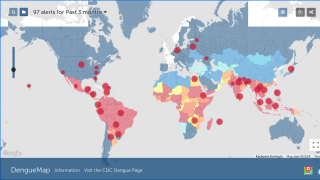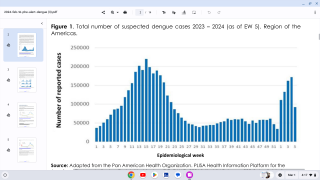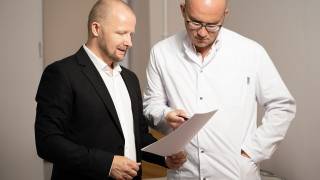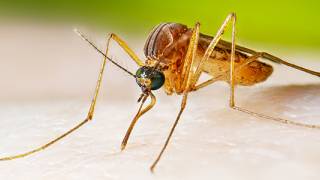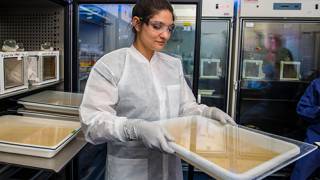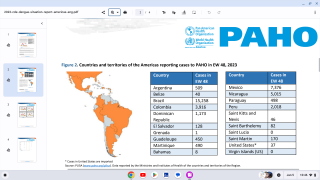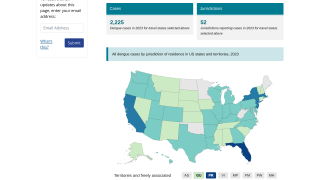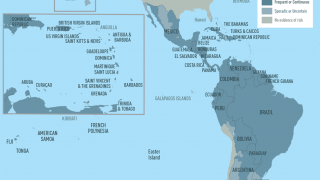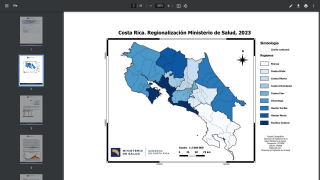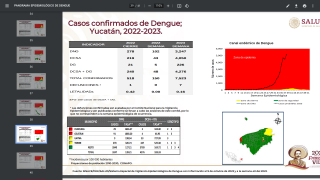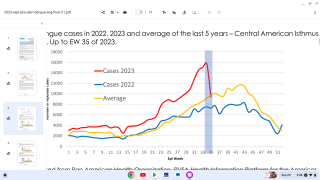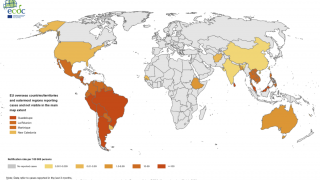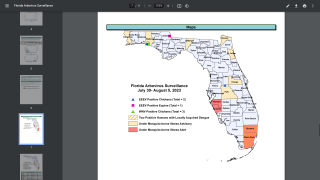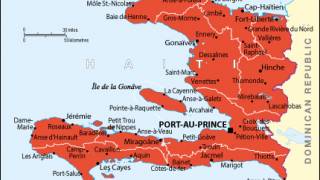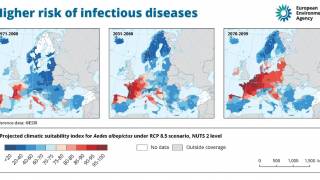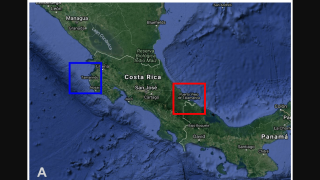Dengue Vaccine Candidate Found 80% Effective

A Phase 3 clinical trial reported a Dengue Fever virus tetravalent vaccine candidate was found effective and appeared safe when tested with children and adolescents.
Takeda's TAK-003 vaccine candidate is based on a live-attenuated dengue serotype 2 virus, which provides the genetic “backbone” for all 4 Dengue virus (DENV) types.
Furthermore, TAK-003's vaccine efficacy was highest against DENV2 serotype compared with the other 3 serotypes.
But, this study’s finding suggests the vaccine offered limited protection against DENV3 in those with no prior Dengue exposure.
The results from this study, Efficacy, Safety, and Immunogenicity of Takeda's Tetravalent Dengue Vaccine (TIDES) which was published in the New England Journal of Medicine on November 6, 2019, concluded the Takeda vaccine candidate TAK-003 was efficacious against symptomatic dengue in countries in which the disease is endemic.
These researchers found the TAK-003 vaccine effective by about 80 percent in the various study groups across the 26 sites in dengue-endemic countries in Latin America and Asia.
The incidence of serious adverse events was similar in the vaccine group and placebo group (3.1% and 3.8%, respectively).
This is important news since various travel alerts have been issued by the US Centers for Disease Control and Prevention (CDC) regarding Dengue outbreaks around the world.
The global incidence of dengue has grown dramatically in recent decades. About half of the world's population is now at risk, says the World Health Organization.
In the USA, there have been 614 dengue cases reported as of October 2, 2019. The states of Florida and California have reported the most dengue cases to the CDC.
The state of California reported 136 travel-related Dengue cases, as of November 1st.
And as of November 2, 2019, Florida’s Health Department has confirmed 325 travel-associated Dengue cases, with Cuba identified as a source of 206 cases during 2019.
Unfortunately, Florida has also reported 12 locally-acquired Dengue cases in 2019.
While the vast majority of Dengue cases are related to mosquito-to-human transmission, mosquitoes can become infected from people who are viremic with Dengue.
Human-to-mosquito transmission can occur up to 2 days before someone shows symptoms of the illness, and up to 2 days after the fever has resolved, says the WHO.
Dengue is caused by a virus that has 4 different but closely-related serotypes. When a person recovers from the infection, he acquires lifelong immunity against that particular serotype.
Dengue is defined by a combination of at least 2 clinical findings in a febrile person, such as a positive tourniquet test, leukopenia, and the following warning signs: persistent vomiting, clinical fluid accumulation, mucosal bleeding, lethargy, restlessness, and liver enlargement.
Dengue can become severe within a few hours.
Severe dengue is a medical emergency requiring immediate medical attention and usually requiring hospitalization, says the CDC. Since there is no specific treatment for dengue, early detection and access to proper medical care can reduce fatality rates of Severe Dengue to below 1 percent.
Previously, the Dengvaxia vaccine was approved by the US Food and Drug Administration (FDA) in the USA for use in children 9-16 years old living in an area where dengue is common, with laboratory-confirmed prior dengue virus infection.
Dengvaxia is a live attenuated tetravalent chimeric vaccine made using recombinant DNA technology by replacing the PrM (pre-membrane) and E (envelope) structural genes of yellow fever attenuated 17D strain vaccine, with those from the 4 dengue serotypes.
Dengvaxia was determined to be approximately 76 percent effective in preventing symptomatic, laboratory-confirmed dengue disease in individuals who previously had laboratory-confirmed Dengue disease.
The most commonly reported side effects by those who received Dengvaxia were a headache, muscle pain, joint pain, fatigue, injection site pain, and low-grade fever.
But, Dengvaxia is not approved for use in individuals not previously infected by any Dengue virus serotype or for whom this information is unknown, says the FDA.
This is because, in people who have not been infected with dengue virus, Dengvaxia appears to act as an initial dengue infection – without actually infecting the person with wild-type dengue virus – such that a subsequent infection can result in Severe Dengue disease.
The new study was supported by Takeda Vaccines. Co-authors are company employees.
Dengue Fever vaccine news published by Precision Vaccinations
Our Trust Standards: Medical Advisory Committee



